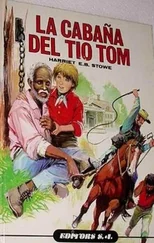Harriet Stowe - Household Papers and Stories
Здесь есть возможность читать онлайн «Harriet Stowe - Household Papers and Stories» — ознакомительный отрывок электронной книги совершенно бесплатно, а после прочтения отрывка купить полную версию. В некоторых случаях можно слушать аудио, скачать через торрент в формате fb2 и присутствует краткое содержание. Жанр: foreign_prose, на английском языке. Описание произведения, (предисловие) а так же отзывы посетителей доступны на портале библиотеки ЛибКат.
- Название:Household Papers and Stories
- Автор:
- Жанр:
- Год:неизвестен
- ISBN:нет данных
- Рейтинг книги:3 / 5. Голосов: 1
-
Избранное:Добавить в избранное
- Отзывы:
-
Ваша оценка:
- 60
- 1
- 2
- 3
- 4
- 5
Household Papers and Stories: краткое содержание, описание и аннотация
Предлагаем к чтению аннотацию, описание, краткое содержание или предисловие (зависит от того, что написал сам автор книги «Household Papers and Stories»). Если вы не нашли необходимую информацию о книге — напишите в комментариях, мы постараемся отыскать её.
Household Papers and Stories — читать онлайн ознакомительный отрывок
Ниже представлен текст книги, разбитый по страницам. Система сохранения места последней прочитанной страницы, позволяет с удобством читать онлайн бесплатно книгу «Household Papers and Stories», без необходимости каждый раз заново искать на чём Вы остановились. Поставьте закладку, и сможете в любой момент перейти на страницу, на которой закончили чтение.
Интервал:
Закладка:
“Yes,” said Jenny, “I am quite sure that there are hundreds who have been buying foreign goods who would not do it if they could see any connection between their not doing it and the salvation of the country; but when I go to buy a pair of gloves, I naturally want the best pair I can find, the pair that will last the longest and look the best, and these always happen to be French gloves.”
“Then,” said Miss Featherstone, “I never could clearly see why people should confine their patronage and encouragement to works of their own country. I’m sure the poor manufacturers of England have shown the very noblest spirit with relation to our cause, and so have the silk weavers and artisans of France, – at least, so I have heard; why should we not give them a fair share of encouragement, particularly when they make things that we are not in circumstances to make, have not the means to make?”
“Those are certainly sensible questions,” I replied, “and ought to meet a fair answer, and I should say that, were our country in a fair ordinary state of prosperity, there would be no reason why our wealth should not flow out for the encouragement of well-directed industry in any part of the world; from this point of view we might look on the whole world as our country, and cheerfully assist in developing its wealth and resources. But our country is now in the situation of a private family whose means are absorbed by an expensive sickness, involving the life of its head: just now it is all we can do to keep the family together; all our means are swallowed up by our own domestic wants; we have nothing to give for the encouragement of other families, we must exist ourselves; we must get through this crisis and hold our own, and, that we may do it, all the family expenses must be kept within ourselves as far as possible. If we drain off all the gold of the country to send to Europe to encourage her worthy artisans, we produce high prices and distress among equally worthy ones at home, and we lessen the amount of our resources for maintaining the great struggle for national existence. The same amount of money which we pay for foreign luxuries, if passed into the hands of our own manufacturers and producers, becomes available for the increasing expenses of the war.”
“But, papa,” said Jenny, “I understood that a great part of our governmental income was derived from the duties on foreign goods, and so I inferred that the more foreign goods were imported the better it would be.”
“Well, suppose,” said I, “that for every hundred thousand dollars we send out of the country we pay the government ten thousand; that is about what our gain as a nation would be: we send our gold abroad in a great stream, and give our government a little driblet.”
“Well, but,” said Miss Featherstone, “what can be got in America? Hardly anything, I believe, except common calicoes.”
“Begging your pardon, my dear lady,” said I, “there is where you and multitudes of others are greatly mistaken. Your partiality for foreign things has kept you ignorant of what you have at home. Now I am not blaming the love of foreign things: it is not peculiar to us Americans; all nations have it. It is a part of the poetry of our nature to love what comes from afar, and reminds us of lands distant and different from our own. The English belles seek after French laces; the French beauty enumerates English laces among her rarities; and the French dandy piques himself upon an English tailor. We Americans are great travelers, and few people travel, I fancy, with more real enjoyment than we; our domestic establishments, as compared with those of the Old World, are less cumbrous and stately, and so our money is commonly in hand as pocket-money, to be spent freely and gayly in our tours abroad.
“We have such bright and pleasant times in every country that we conceive a kindliness for its belongings. To send to Paris for our dresses and our shoes and our gloves may not be a mere bit of foppery, but a reminder of the bright, pleasant hours we have spent in that city of boulevards and fountains. Hence it comes, in a way not very blamable, that many people have been so engrossed with what can be got from abroad that they have neglected to inquire what can be found at home: they have supposed, of course, that to get a decent watch they must send to Geneva or to London; that to get thoroughly good carpets they must have the English manufacture; that a really tasteful wall-paper could be found only in Paris; and that flannels and broadcloths could come only from France, Great Britain, or Germany.”
“Well, isn’t it so?” said Miss Featherstone. “I certainly have always thought so; I never heard of American watches, I’m sure.”
“Then,” said I, “I’m sure you can’t have read an article that you should have read on the Waltham watches, written by our friend George W. Curtis, in the ‘Atlantic’ for January of last year. I must refer you to that to learn that we make in America watches superior to those of Switzerland or England, bringing into the service machinery and modes of workmanship unequaled for delicacy and precision; as I said before, you must get the article and read it, and, if some sunny day you could make a trip to Waltham and see the establishment, it would greatly assist your comprehension.”
“Then, as to men’s clothing,” said Bob, “I know to my entire satisfaction that many of the most popular cloths for men’s wear are actually American fabrics baptized with French and English names to make them sell.”
“Which shows,” said I, “the use of a general community movement to employ American goods. It will change the fashion. The demand will create the supply. When the leaders of fashion are inquiring for American instead of French and English fabrics, they will be surprised to find what nice American articles there are. The work of our own hands will no more be forced to skulk into the market under French and English names, and we shall see, what is really true, that an American gentleman need not look beyond his own country for a wardrobe befitting him. I am positive that we need not seek broadcloth or other woolen goods from foreign lands, – that better hats are made in America than in Europe, and better boots and shoes; and I should be glad to send an American gentleman to the World’s Fair dressed from top to toe in American manufactures, with an American watch in his pocket, and see if he would suffer in comparison with the gentlemen of any other country.”
“Then, as to house-furnishing,” began my wife, “American carpets are getting to be every way equal to the English.”
“Yes,” said I, “and, what is more, the Brussels carpets of England are woven on looms invented by an American, and bought of him. Our countryman, Bigelow, went to England to study carpet-weaving in the English looms, supposing that all arts were generously open for the instruction of learners. He was denied the opportunity of studying the machinery and watching the processes by a shortsighted jealousy. He immediately sat down with a yard of carpeting, and, patiently unraveling it thread by thread, combined and calculated till he invented the machinery on which the best carpets of the Old and the New World are woven. No pains which such ingenuity and energy can render effective are spared to make our fabrics equal those of the British market, and we need only to be disabused of the old prejudice, and to keep up with the movement of our own country, and find out our own resources. The fact is, every year improves our fabrics. Our mechanics, our manufacturers, are working with an energy, a zeal, and a skill that carry things forward faster than anybody dreams of; and nobody can predicate the character of American articles in any department now by their character even five years ago.”
Читать дальшеИнтервал:
Закладка:
Похожие книги на «Household Papers and Stories»
Представляем Вашему вниманию похожие книги на «Household Papers and Stories» списком для выбора. Мы отобрали схожую по названию и смыслу литературу в надежде предоставить читателям больше вариантов отыскать новые, интересные, ещё непрочитанные произведения.
Обсуждение, отзывы о книге «Household Papers and Stories» и просто собственные мнения читателей. Оставьте ваши комментарии, напишите, что Вы думаете о произведении, его смысле или главных героях. Укажите что конкретно понравилось, а что нет, и почему Вы так считаете.












